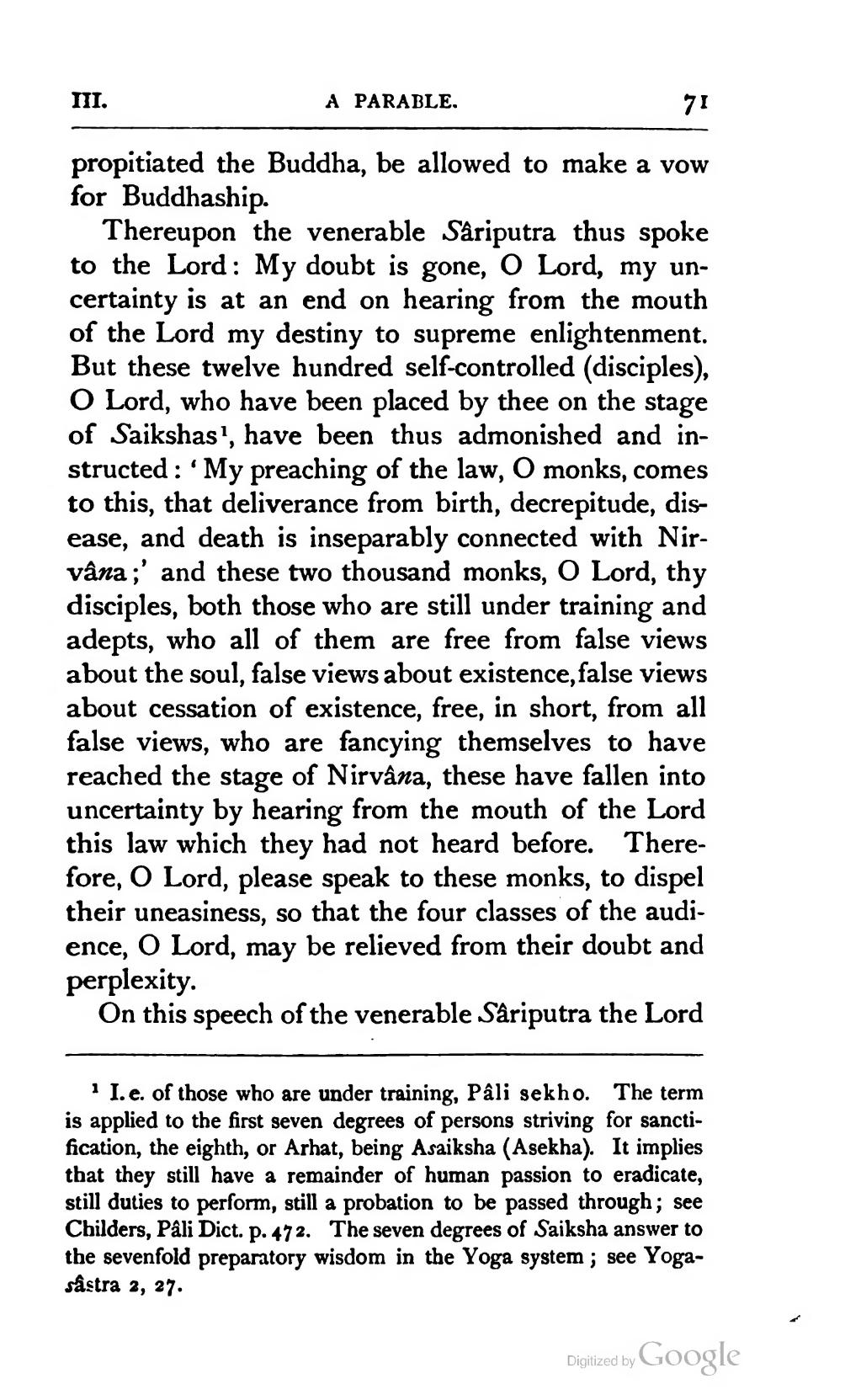propitiated the Buddha, be allowed to make a vow for Buddhaship.
Thereupon the venerable Sâriputra thus spoke to the Lord: My doubt is gone, O Lord, my uncertainty is at an end on hearing from the mouth of the Lord my destiny to supreme enlightenment. But these twelve hundred self-controlled (disciples), O Lord, who have been placed by thee on the stage of 6aikshas have been thus admonished and instructed: 'My preaching of the law, O monks, comes to this, that deliverance from birth, decrepitude, disease, and death is inseparably connected with Nirvâna;' and these two thousand monks, O Lord, thy disciples, both those who are still under training and adepts, who all of them are free from false views about the soul, false views about existence, false views about cessation of existence, free, in short, from all false views, who are fancying themselves to have reached the stage of Nirvâna, these have fallen into uncertainty by hearing from the mouth of the Lord this law which they had not heard before. Therefore, O Lord, please speak to these monks, to dispel their uneasiness, so that the four classes of the audience, O Lord, may be relieved from their doubt and perplexity.
On this speech of the venerable Sâriputra the Lord
I.e. of those who are under training, Pâli sekho. The term is applied to the first seven degrees of persons striving for sanctification, the eighth, or Arhat, being Asaiksha (Asekha). It implies that they still have a remainder of human passion to eradicate, still duties to perform, still a probation to be passed through; see Childers, Pâli Dict. p. 472. The seven degrees of Saiksha answer to the sevenfold preparatory wisdom in the Yoga system; see Yogasâstra 2, 27.
